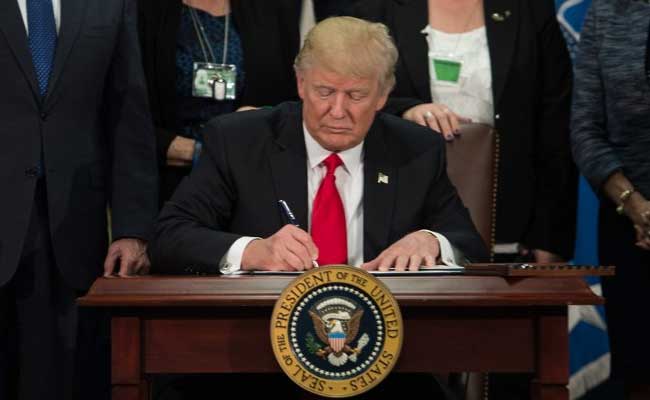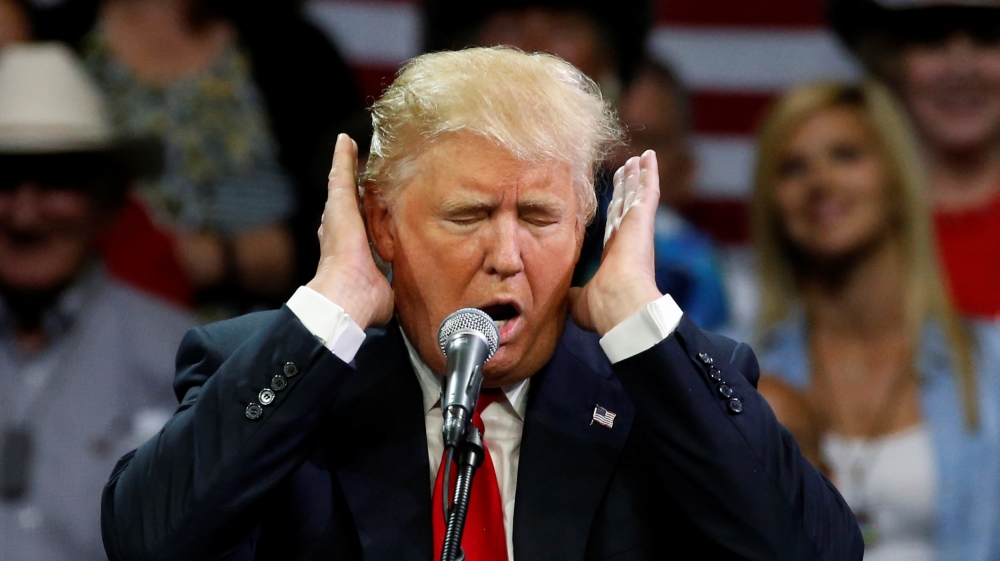By Hamilton Odunze
Western populist ideologies are gaining mainstream support, and make no mistake: if implemented the way that Trump and Macron envision, this will destabilize Africa. If you want to gauge the acceptance of populist ideology in mainstream America, consider the example of Donald Trump. This was why he won the United States presidency, and why he still “enjoys” forty percent support (although this is the lowest in modern American polling of presidential approval ratings), all while supporting anti-immigration policies, tweeting compulsively, and making outlandish comments that can only be interpreted as hatred towards immigrants in the United States.
Another gauge for populist support is the example of Emmanuel Macron, the president of France. Although polls published a few days ago have Macron’s approval rating dropping down to fifty percent from fifty-two percent in December, 2017, he still is one of the most admired world leaders of our time. Even at a fifty percent approval rating, Emmanuel Macron enjoys more local support than Trump. But while Donald Trump pushes his “America First” policies, Emmanuel Macron pushes globalist policies. So, why have these leaders maintained grassroots support?
The answer may lie in what Trump and Macron have in common: a focus on immigration. During his campaign, Trump promised his supporters that he would crack down on illegal immigration, and since assuming office as the President of the United States, Trump has signed the Reforming American Immigration for a Strong Economy (RAISE) Act. The RAISE Act is aimed at reducing immigration into the United States by fifty percent, and the bill would also cap the United States’ refugee intake at 50,000, ending the DV lottery visa program as well.
However, in his first State of the Union address a few days ago, Trump asked the United States Congress to support his move to end chain migration into the United States. Chain migration is the provision in immigration law that grants qualified immigrants the authorization to file for extended family members, such as parents, nephews, cousins, and uncles. If Trump’s request to end chain migration is granted—coupled with the discontinuing of DV lottery visas and skill-based visa approval—he has basically barred Africans from coming into the United States.
Meanwhile, in France, Emmanuel Macron has toughened up France’s immigration policies as well. Macron’s interior minister has been criticized for stepping up the deportation of illegal immigrants who had been picked up from emergency shelters across France. A few days ago, in Calais, Macron defended his immigration policy by arguing that it is a hybrid of benevolence and firmness. But when the French police are ripping blankets away from freezing people in shelters, it’s hard to see the benevolent aspect of Macron’s immigration policy.
Trump’s and Macron’s appeal to their base is hinged on tough immigration policies, and this is what is fueling the populist ideology. Incidentally, this is also why Brexit passed in the United Kingdom. Brits got overwhelmed when sheets of immigrants flocked from the Middle East and Africa, and reacted by voting to close themselves off from continental Europe.
While Trump and Macron enjoy support while grappling with the controversies of their populist ideologies, it seems rather obvious that they do not understand the unintended consequences of their immigration policies. Just a few days ago, Donald Trump questioned why the U.S. is accepting more immigrants from “shithole” African nations than from Norway. He has made it clear that immigrants from nations with skilled labor are more desirable, and Trump’s supporters argue that there is nothing wrong with tilting immigration policies in favor of Norway, or any other nation with skilled labor.
They are only partially right. Trump and Macron have no legal obligations to allow immigrants into their countries. More than anything, immigration is a global moral issue, which is why their critics have accused them of inhumanity. One thing is for sure: the global impact of western populist ideology will be felt in Africa more than in any other continent, and the unintended consequences will also be very noticeable.
Consider the fact that Africa is marginally more peaceful than the Middle East, but it also has porous borders, which will make it easy for unimpeded numbers of refugees to gain entrance. Understandably, it sounds hypocritical to condemn America and Europe for their immigration policies and yet point out the problems created by refugee intake into Africa. But the problem is that Africa has very little economic resources with which to cope with an influx of refugees. In fact, the already poor economic conditions will just get even worse. A second point is that the African diaspora sends $120 to $160 billion home, which constitutes five percent of Africa’s GDP. As the number of African immigrants into the United States and Europe shrinks, a good portion of this GDP will be reduced as well.
Yet if you go beyond immigration policies, there is also a selfish component to the populist ideology. President Trump calls it “America First.” In his State of the Union address last week, he touted the defeat of ISIS and other terrorist organizations in the Middle East as primary concerns. Trump never mentioned where the surviving members of these terrorist organization are headed, but the fact is that they are headed to Africa, and the “America First” policy will not allow for assisting Africa to become better equipped for the coming crisis. It’s only a matter of time before Africa is overrun by ISIS and other terrorist organizations, and when that time comes, the carnage and the abuse of human rights will become far worse.
Hamilton Odunze
@hodunze1

